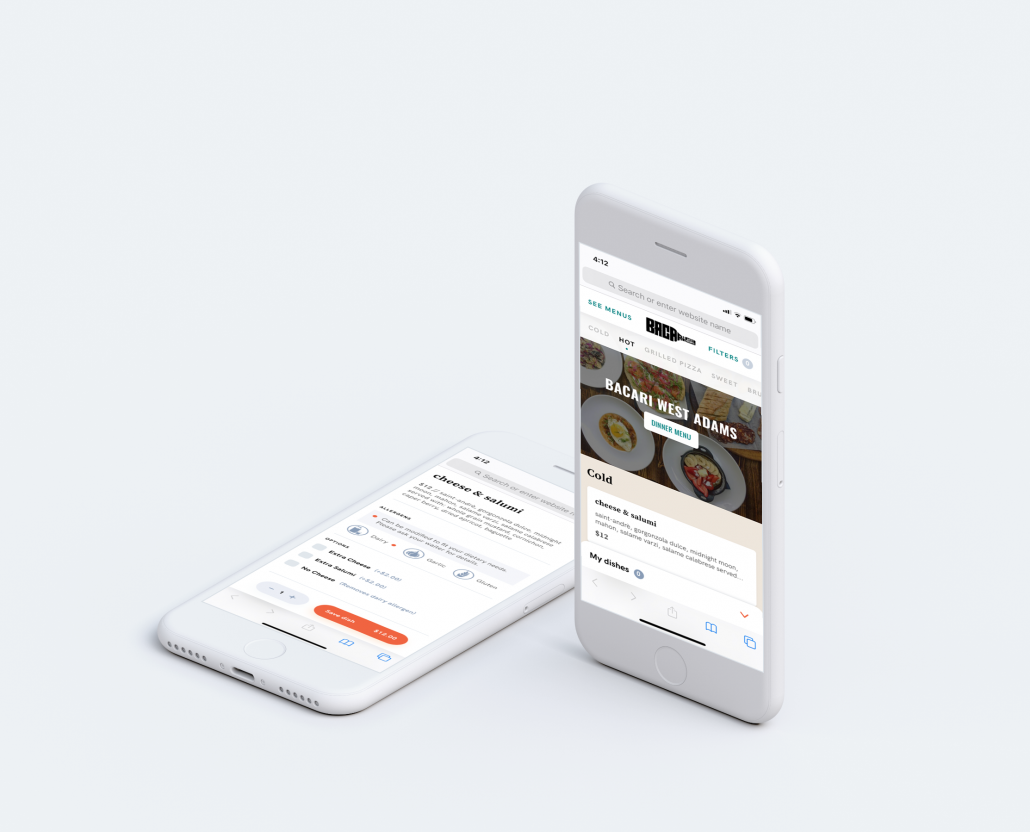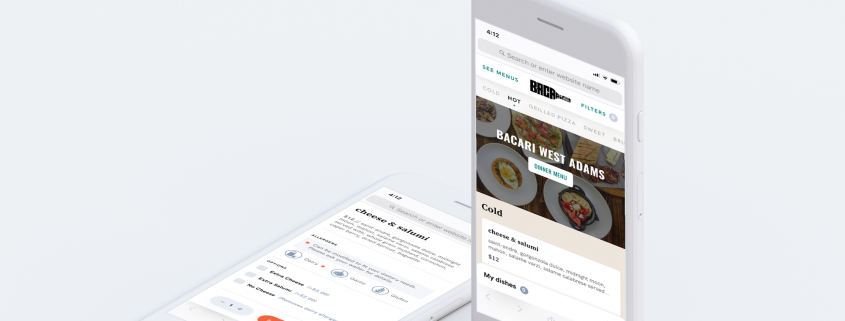Nomi app helps restaurants with transparency

When USC alumna Mac Baker went out to eat at a nearby popular restaurant with her friend, who had a severe dairy allergy, she saw her friend struggle to order her food, causing delays for the waiter.
“When we were ordering, [my friend] had to ask the waiter multiple times to go to the back of the kitchen to ask ‘Does this dish have dairy?’ ” Baker said. “She felt really bad putting the waiter out of his way because he was already super busy that night, and then, obviously, she felt bad because it was holding up the table.”
To remedy this problem, Baker, along with alumni Zach Sullens and Conner Chyung, founded Nomi, a startup that provides personalized digital menus to customers with dietary restrictions, making it easier for them to place orders. On top of an allergen and dietary focused smart menu, Nomi also provides touchless ordering directly to restaurant point of service systems as well as comprehensive menu management.
Baker, an aluma of the USC Iovine and Young Academy, was required to create a startup to solve an issue during her senior year, and decided to pursue solving an issue related to restaurants and food.
After Baker’s experience with her friend, she realized that meeting dietary restrictions of restaurant customers was a real problem that needed to be solved.
“[My friend] is not the only person who goes into a restaurant with a specific food allergy or other dietary need,” Baker said. “It happens pretty frequently, and when restaurants mess that up, at worst, they have a lawsuit on their hands … or in the best case scenario for them, they waste a dish, and they waste time and money preparing something that [the customer] couldn’t even eat.”
Matthew Manos, Baker’s mentor and teacher at the Academy, also has severe food allergies and needs to be cautious when eating at restaurants. His passion for entrepreneurship combined with his personal experience made him “beyond excited” to work on the startup.
“As someone with severe food allergies myself, I’ve long desired a product like Nomi which can challenge restaurants to be more transparent and inclusive.” Manos said in an email to the Daily Trojan. “Having the chance to work with startups like Nomi brings a great deal of purpose into my day-to-day work and life.”
With Nomi, customers can scan QR codes on the restaurant menus which takes them to a website with a more detailed menu. The customer is met with a modern interface and an interactive menu where clicking on each dish shows the description, allergen information and price. In addition, Nomi menus provide a filter function so customers can filter out what foods they are allergic to.
When a customer filters out what they are allergic to, ways the dish can be modified to meet their dietary needs are presented. For example, if a dish is sprinkled with cheese on top, the cheese is indicated as a “removable dairy allergy.”
Currently, Nomi is being used at seven restaurants. Five of the restaurants belong to the Bacari group in Los Angeles, and the other restaurants include Ploy II Thai Cuisine, a Thai restaurant in San Francisco and Saigon Sisters, a Vietnamese restaurant in Chicago.
When asked for general feedback after using Nomi’s menus at Bacari, Director of Operations Michael Meyeri said the old menu was limiting and slowed down the ordering process.
“Before we started using Nomi, you’d scan the QR code, go to our website and it would just be basically a PDF on the website, you’d have to zoom in and zoom out because we had small font,” Meyer said. “[The old menu made ordering] time consuming, and every second counts in the restaurant business.” Thanks to Nomi, customers at Bacari now have an easier time ordering.
According to Meyer, a Bacari customer had almost a month of their life negatively impacted because they ate something they were not supposed to.
“They were going to have a tough time for a whole month, and so I really took that to heart,” Meyer said. “That was another reason why I wanted to start using Nomi, just to make sure that we’re being safe with our guests, so that they could trust us.”
Baker said that she and her team are reaching out to as many restaurants as possible, and hope to see a snowball effect when it comes to acquiring new restaurants using Nomi.
“Once you [get a couple restaurants], you’re going to get the referrals and you’re going to get happy customers, and Nomi will be more reputable if it exists in more restaurants.” Baker said.
In the short term Baker says that the Nomi team’s main goal is to expand their restaurant network and hopefully get an investor and funding for the team to start working full time.
The name “Nomi” came from the Japanese term for “have things your way” as Baker explains that “it’s just kind of a nod to the purpose of our menu [which] is to make sure that customers who have different dietary restrictions can have their dishes the way that they want them.”
And hopefully things can go Baker’s way in the future.
“If things go my way then like I would want to work on this full time … it’s been kind of hectic juggling two jobs, but everyone on the team is either juggling two jobs or they’re currently a student, Baker said. “We all just believe that Nomi should exist and that’s why we work on it.”

